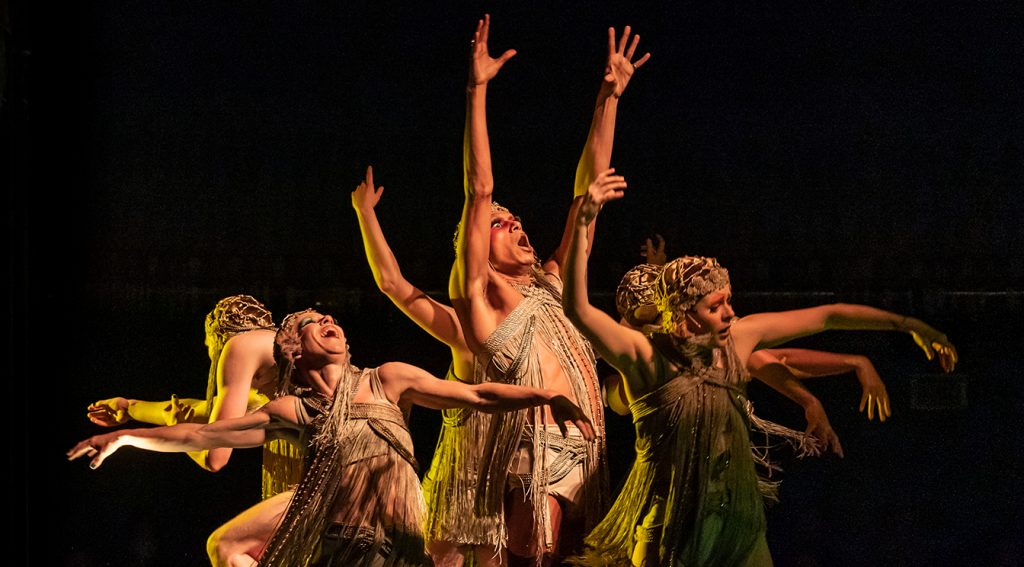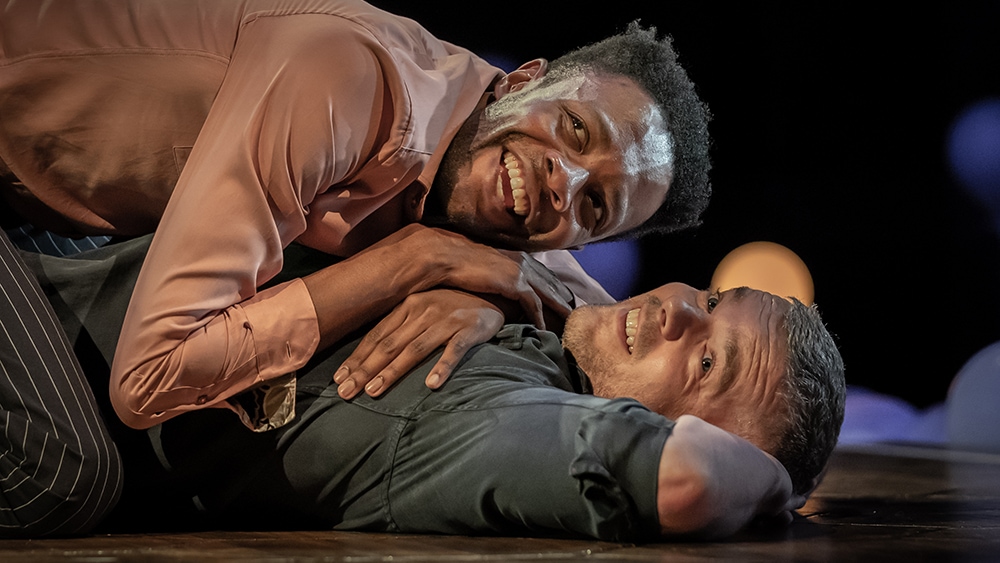Harrison David Rivers’ play sees an interracial couple react to the Black Lives Matter movement. The twist is that Waspy Neil is the activist. The tension is that his African American boyfriend, Jesse, is accused of apathy. There’s intelligence and detail here, both emphasised by director Billy Porter. But there’s also disappointment, as the topic isn’t explored in depth and the romance doesn’t move as much as it might.
There are a lot of references, many of them American, showing Rivers’ careful research, which situates his play firmly in a time and place. From the title, based on a song by Dinah Washington, to the poet Essex Hemphill (who I confess I’m keen to learn more about), the quotes, songs and people mentioned don’t necessarily have to be explained. But might the references be elaborated on? In a short play (less than 90 minutes), ideas bombard the audience and the work is weighed down by its erudition rather than the substance of what is being said.
Neil and Jesse speak in hashtags and slogans. I don’t doubt this is accurate and, again, the dialogue situates us in a specific context well. But do people talk like this all the time? The little bit of flirting we see is sweet, but much of the everyday is lost in talk of privilege and activism. So, the play’s tragic conclusion isn’t as emotional as it should be. Rivers’ efforts to tug at heartstrings come across as forced. More seriously – surely in opposition to his aims – there isn’t enough debate. Argument is lost among signalling. That’s a shame and it leaves the play feeling… not bad, but thin.
The structure of the piece, though, is exciting. Action goes back and forth, with conversations repeated to good effect. Big moments in the relationship are shown out of sync. Some scenes are very short, punctuated by robust sound and lighting design, from Julian Starr and Lee Curran respectively, and aided by the video work so integral to Morgan Large’s efficient set. Porter and the cast deal with all this impeccably, not only avoiding potential confusion but creating an energy that matches the script. For all that, the action, while thought-provoking, contributes to a distance from the characters. Rivers treats growth and development of the men and his story in a novel manner. I just don’t think it works.
Despite these reservations, the performances from Omari Douglas and Alexander Lincoln are an undoubted success. Their accents are superb, the chemistry between them fantastic and they bring out the script’s sexiness and humour wonderfully. Douglas makes the super-smart, if self-obsessed, Jesse appealing, showing a self-knowledge that is inspiring. Moments of explosive rage or grief are compelling. Lincoln allows Neil’s wealthy background to be a genuine cause of concern – and his guilt is contagious. Clearly, the cast, and Porter, see a lot in This Bitter Earth and it is their conviction that carries the day.
Until 26 July 2025
Photo by Tristram Kenton




